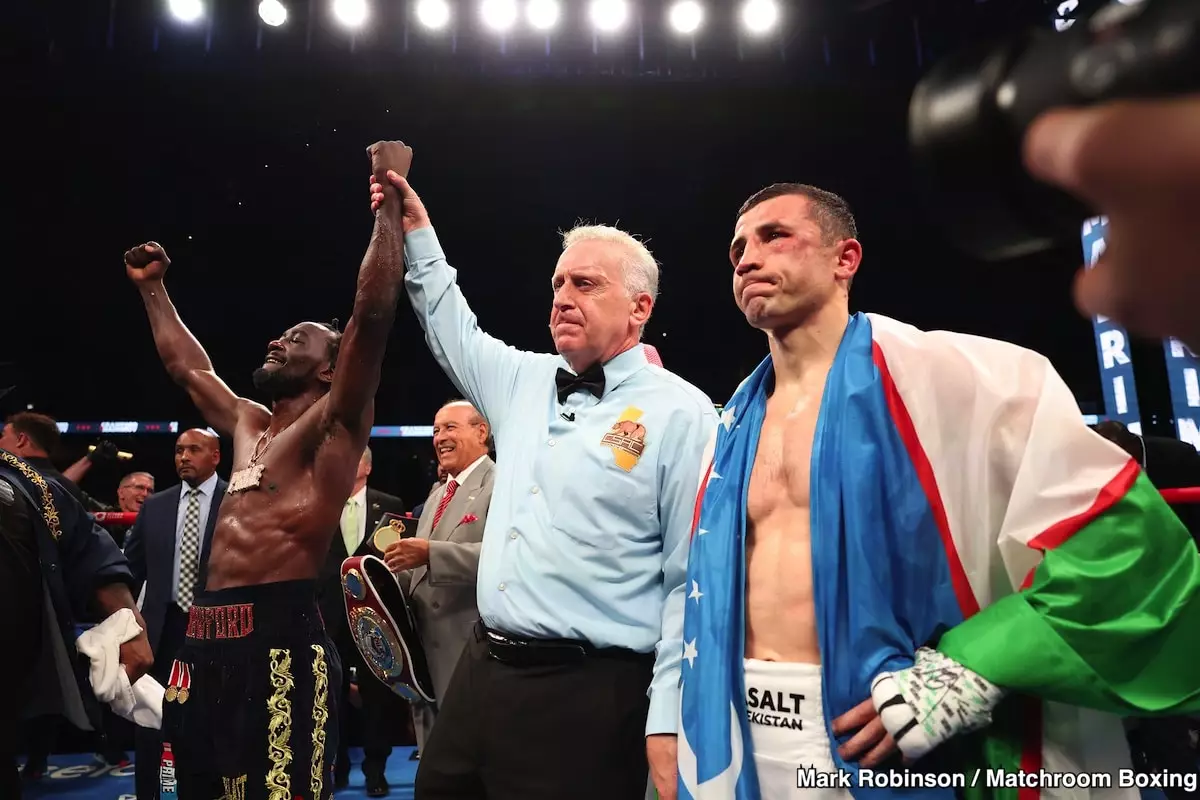In the realm of professional boxing, few names ignite as much debate as Terence Crawford. Recently, Crawford took to social media to reflect on his journey, highlighting the skepticism he has faced throughout his career. Despite an impressive record of 41 wins and no losses, the question remains: why does Crawford find himself constantly in the shadow of doubt? This article delves into the reasons surrounding his perceived hesitance to engage with top-tier competitors and how this has shaped the public’s perception of him.
Crawford’s career has largely unfolded against a backdrop of perceived safety. Throughout his time in the ring, he has often been viewed as the favorite against his opponents, a fact that has led critics to label his match choices as conservative. Many fans have articulated a desire to see Crawford engage in fiercely contested matchups—those 50-50 fights that can define a boxer’s legacy. Instead, what fans often witness are bouts where Crawford is pitted against underwhelming challengers, leading to a sense of stagnation in excitement around his boxing events. This has created an ongoing narrative where each fight feels like just another step in a predetermined path rather than an invigorating contest.
Crawford’s inactivity raises pertinent questions about his competitive spirit. After a high-stakes move to the junior middleweight division, many anticipated a series of electrifying showdowns, especially considering the wealth of talent in that weight class. However, there has been a notable dearth of activity from Crawford, punctuated only by a narrow victory against WBA champion Israil Madrimov. This leaves fans pondering—what is keeping Crawford from actively pursuing matchups with his contemporaries, such as Sebastian Fundora or Bakhram Murtazaliev?
The notion that Crawford is holding out for a lucrative bout against established champions like Canelo Alvarez casts a shadow over his ambitions. Critically, this approach suggests an inclination towards financial security over competitive integrity. Fans and analysts alike recognize this pattern, further fueling their skepticism about Crawford’s resolve to ascend the ranks in a more challenging manner.
While Terence Crawford boasts an undefeated record, the caliber of opponents on his resume often detracts from the weight of his achievements. Critics point out that, throughout his rise, he has consistently faced B-level opponents rather than seeking out elite contenders capable of propelling him to greater heights. His victory over Errol Spence is frequently criticized, especially in light of Spence’s prior injuries and struggles. This context leads to questions about the validity of his accolades and the confidence in his boxing prowess.
A deeper look into his resume indicates an urgent need for Crawford to diversify his opposition if he hopes to cement his legacy. Without compelling bouts against elite fighters, fans are left to wonder whether he can truly be considered among the greats. The call for him to be more active—and more ambitious in his match choices—is growing louder as boxing enthusiasts seek authenticity over a highlight reel of carefully chosen victories.
For Terence Crawford, the road ahead is riddled with both opportunity and challenge. To truly escape the cycle of doubt, he must take bold risks and engage in bouts that not only captivate audiences but also serve as benchmark fights for his career. The boxing world thrives on narratives of grit, determination, and triumph against adversity; Crawford’s next moves could redefine his legacy from one of doubt to one of respect.
A fight against a top competitor in the junior middleweight division could position him as a serious contender again and begin to fulfill his ambitions of unifying his division. By actively seeking out these fights, Crawford could shift the narrative surrounding his career, from one marked by concerns over ambition and effort to one brimming with potential and achievement.
In essence, while Terence Crawford’s career is remarkable in many respects, it remains overshadowed by the doubts cast by fans and critics alike. His desire to secure a high-profile payday against Canelo Alvarez—without first proving his mettle against formidable opponents—can be perceived as a sign of entitlement. However, the boxing community is ever hopeful that Crawford will embrace the spirit of competition, confront the elite fighters in his weight class, and ultimately transform his legacy into one worthy of celebration. The critical lens through which his career is viewed may shift if he chooses the path of active engagement, dedication, and bravery in the ring.

